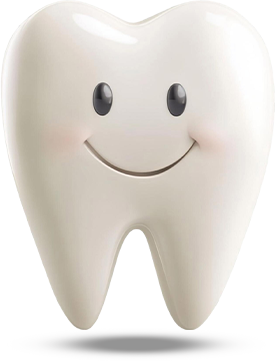
What is Sedation?
Sedation is a conscious relaxation method that allows patients to receive treatment without anxiety and in comfort during medical procedures. Although it is not a complete sleep state, the person is not aware of what is happening around them or remembers very little. Sedation is widely preferred for dental treatments, minor surgical procedures and especially for pediatric patients.
We make your treatment process comfortable and stress-free. You can contact us to get information about sedation applications and to request a price quote.
How is Sedation Applied?
Sedation can be performed in different ways depending on the patient’s age, general health status and the duration of the procedure. The most common methods include intravenous sedation, gas administered through a mask through the nose (nitrous oxide – laughing gas) and oral sedatives. Before the procedure, the patient undergoes a detailed check-up and the entire process is carried out under the supervision of a specialist.
We manage the treatment process safely by keeping your comfort at the forefront. You can get a quote from us and request an expert evaluation to find out which sedation method is right for you.
What are the Types of Sedation?
Sedation is divided into three main categories according to the method of application and depth: light, medium and deep sedation. In light sedation, the patient is awake but relaxed. In medium sedation, the patient falls asleep during the procedure and does not remember most of the things. In deep sedation, the patient is as if asleep and has little reaction to external stimuli. In addition, “inhalation sedation” with sedative gas is also frequently used, especially in pediatric patients.
We determine the most appropriate sedation method for patients with treatment fear and make the process easier for you. You can contact us for information and price requests.
Who is Sedation Suitable For?
Sedation is quite suitable for adults who are afraid of dental treatment or surgical interventions, children who have difficulty cooperating, disabled individuals and patients with a low pain threshold. Sedation may also be recommended to ensure the comfort of the patient in long-term and complicated procedures. The applicability of sedation must be clarified with the doctor’s approval.
We eliminate your concerns by making the treatment process more comfortable. You can get a quote from us and make an appointment to see if sedation is suitable for you.
Differences Between Sedation and General Anesthesia
Sedation and general anesthesia, although often confused, are very different practices. In sedation, the patient is semi-conscious, can breathe throughout the procedure and can respond to stimuli. In general anesthesia, the patient is completely unconscious, must be connected to a respirator and requires deeper control. While sedation is preferred for simpler and shorter procedures, general anesthesia is suitable for major surgeries.
We evaluate which method is safer and more effective for you with our expert team and ensure that you make the right decisions. You can get support from us for treatment options and price information.
Advantages and Disadvantages of Sedation
Sedation is a very effective method to make medical procedures more comfortable. Its biggest advantage is that it reduces anxiety, eliminates pain, and psychologically facilitates the treatment process. It also provides comfort during the procedure, especially for children, individuals with dentist phobia, and disabled patients. However, as with every application, sedation can also have disadvantages. Some individuals may experience nausea, temporary dizziness, or fatigue. These effects are usually short-lived and recover quickly under expert control.
We offer a comfortable, safe and controlled treatment process. You can contact us to find out if sedation is suitable for you and to get price information.
How Does the Sedation Process Proceed?
The sedation process begins with a detailed evaluation before starting treatment. The patient’s medical history is reviewed, allergy status and health history are taken into consideration. After the appropriate type of sedation is determined, sedative medication is administered on the day of the procedure. The patient is relaxed, carefree and largely unconscious during the procedure. When the procedure is over, the patient wakes up shortly and can return to daily life after a short rest.
We plan every step for you and carry out the process safely and comfortably. You can contact us to get detailed information and prices about the sedation process.
How Long Does Sedation Last?
The duration of sedation may vary depending on the length of treatment and the type of sedation. While 30 minutes to 1 hour of sedation is usually sufficient for short-term dental treatments, this period may be longer for more extensive procedures. Light sedations have a rapid effect and the patient can recover quickly after the procedure. The duration and dosage are planned completely individually for the patient.
We plan your treatment period in advance and offer you the most suitable sedation program. You can get information about application duration and price details from us.
Things to Consider After Sedation
After sedation, the patient should rest for a while, not drive and should go home with a companion. Temporary effects such as mild dizziness, lightheadedness or forgetfulness may be observed. Important decisions should not be made on the same day and heavy physical activities should be avoided. In addition, care should be taken to eat liquids and light foods as recommended by your doctor. During the first 24 hours, the body recovers and a return to normal life is achieved.
We support your recovery process after treatment and make the process easier with special care recommendations. You can contact us for more information and prices on what to consider after sedation.
Use of Sedation in Dental Treatment
Sedation provides great convenience for patients who are afraid of the dentist or for long-term procedures. During tooth extraction, root canal treatment, implant placement or dental treatments for children, patient comfort is maximized with sedation. In this way, both the patient and the doctor have a more efficient working environment. Sedation reduces the feeling of pain during intraoral interventions and also eases the duration of the procedure psychologically.
We offer safe sedation applications so that you can have your dental treatments without any worries. You can contact us for detailed information and to request a quote.
Things to Know Before Getting Sedation
The patient’s general health status must be evaluated before sedation. Conditions such as heart disease, respiratory problems, and allergy history must be reported to the physician in detail. A minimum of 6 hours of fasting may be required before the procedure. It should also be noted that the effects after sedation may continue for a while. All these details are planned specifically for the patient and the procedure is performed safely.
We plan the pre-treatment process in detail and answer all your questions with expert support. You can contact us immediately to learn what you need to know about sedation and get a quote from us.
Sedation Turkey Cost 2025
Sedation prices for 2025 may vary depending on the type of sedation to be applied (light, medium, deep), the duration of the procedure, and the general health status of the patient. In addition, the evaluation of sedation together with the treatment to be applied may also affect the price. When personalized planning is made, both safe and cost-effective solutions can be obtained.
We offer the most affordable price options for you and make your treatment process comfortable. You can get information about 2025 sedation prices from us and make your appointment.
FAQ
Is Sedation Safe?
Sedation is a very safe method when applied by an experienced specialist. Before the application, the patient’s general health status is evaluated in detail, and any chronic diseases are taken into account. The dosage of the drugs used is adjusted specifically for the patient and vital signs are monitored throughout the procedure. Safe results are obtained thanks to controlled and short-term applications, especially in dental treatments.
We provide maximum safety during your treatment process and perform all applications under expert supervision. You can contact us to get information about safe sedation and to request a price quote from us.
Will I be awake during sedation?
Sedation is usually a conscious state of relaxation. In other words, the person does not sleep completely, but does not remember most of the events around them and does not feel the need to react. Depending on the type of sedation applied, a light drowsiness may be experienced or the patient may remain completely rested throughout the procedure. In this way, the patient neither feels the procedure nor experiences anxiety.
We offer a comfortable treatment process that relaxes you. You can get support from us to learn which type of sedation is right for you and to get price information.
When Can I Return to Normal Life After Sedation?
After sedation, patients can usually return to their normal lives after a short rest. Although the effect of sedation varies from person to person, most patients recover within 1-2 hours after the procedure. However, it is recommended not to drive for the first 24 hours, to postpone important decisions, and to avoid heavy physical activity.
We manage your recovery process safely by monitoring you closely. You can contact us to get information about the post-sedation process and to request a price quote.
Is Sedation Appropriate for Children?
Sedation can be used safely in many procedures, especially in pediatric patients and dental treatments. Sedation is particularly effective for children who are resistant to treatment, have difficulty cooperating or are fearful. The application is planned specifically for the age, weight and health status of the child and is performed under the supervision of a pediatric dentist.
We make your children’s treatment process comfortable and support it with safe sedation applications. You can contact us to get detailed information and to get a price quote from us.
Can Dental Treatment Be Performed with Sedation?
Sedation is a frequently used method in dental treatments. Sedation can be applied during many interventions such as root canal treatment, tooth extraction, implant applications and surgical procedures. This method both increases the patient’s comfort and allows the doctor to carry out the treatment in a more controlled manner. It is especially preferred in long-term procedures or in patients with high anxiety.
We make your dental treatments comfortable and stress-free, and offer a safe process with sedation. You can get support from us for application details and price information.
Are There Any Side Effects of Sedation?
Side effects of sedation are usually mild and temporary. The most common effects include dizziness, short-term forgetfulness, nausea, and lightheadedness. These effects usually disappear within a few hours. Serious reactions during the procedure are rare, and these risks are minimized by a health assessment before the procedure.
We minimize risks with our safe application protocols and inform you in detail. You can get a quote from us to get information about possible effects and application conditions.
Which is Better: Sedation or General Anesthesia?
Sedation and general anesthesia are quite different from each other and the method to be preferred depends on the type of procedure, its duration and the health status of the patient. Sedation is ideal for lighter, shorter and local applications. The patient is conscious but relaxed. In general anesthesia, the patient is completely unconscious and may require respiratory support. While general anesthesia is preferred in major surgeries, sedation is more suitable for procedures such as dental treatments.
We determine the most suitable method for you together and offer both safe and comfortable solutions. You can contact us to get support in the decision process and to get price information.



